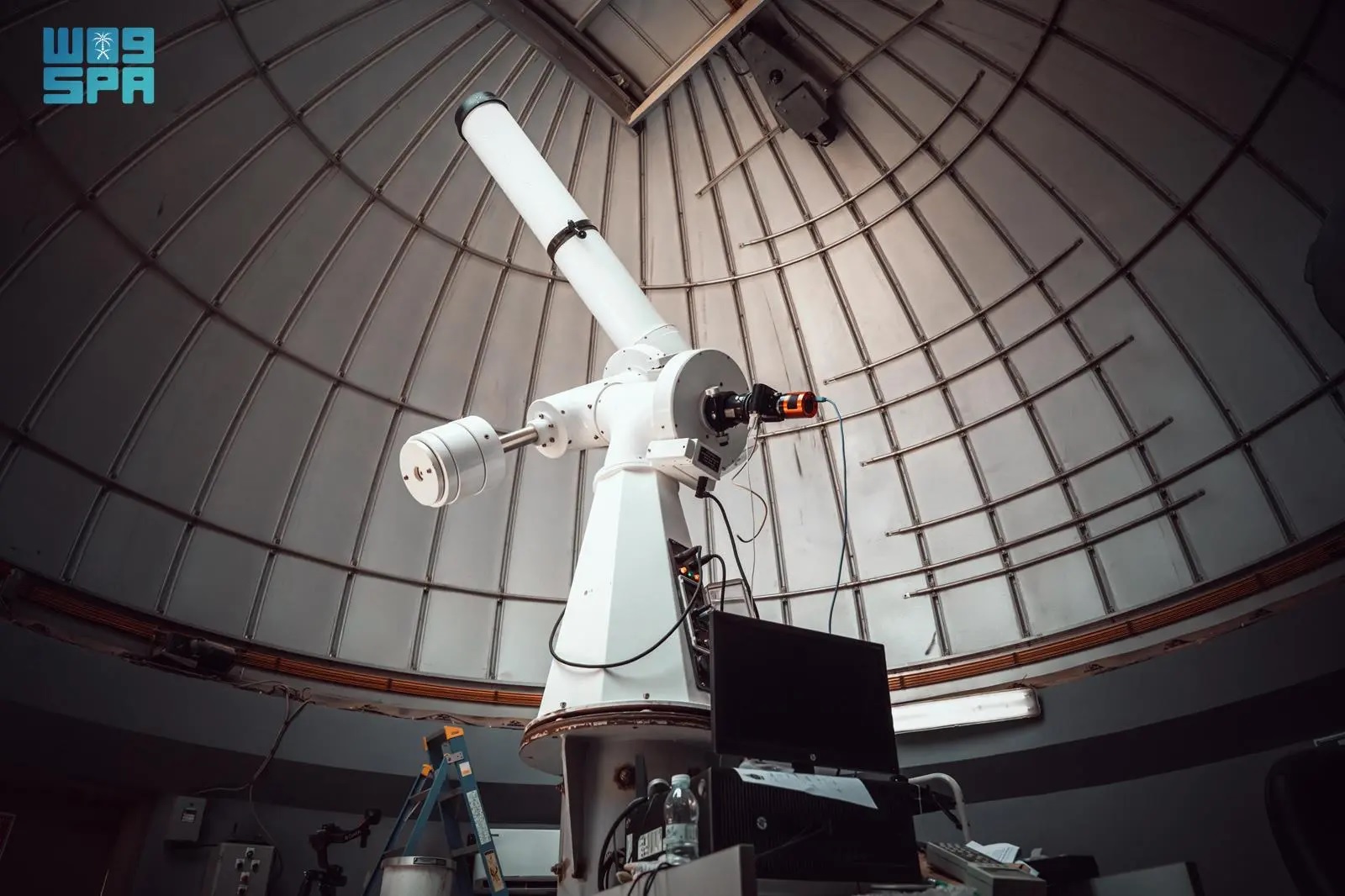
King Abdulaziz University Planetarium: A Leading Hub for Space Science and Research
The planetarium of the Department of Astronomy and Space Science at the Faculty of Science, King Abdulaziz University, participated in observing last night's lunar eclipse, one of the most prominent astronomical phenomena that captivates both the public and researchers alike.
The planetarium is one of the most distinguished facilities of the Kingdom’s first specialized department in astronomy and space sciences. It houses a state-of-the-art observatory that functions as both an educational and research platform, enabling students and researchers to directly observe celestial bodies and simulate the movements of stars, planets, the moon, and the sun, effectively linking theory with practice.
Beyond astronomical observations, the planetarium serves as a cornerstone of academic activity. It contributes to the production of specialized research in astronomy and space sciences, offers master’s and doctoral programs, and develops pioneering curricula aligned with the latest global advancements in this vital field.
The planetarium welcomes over 5,000 visitors annually, including school students, university students, and astronomy enthusiasts. It serves as an open educational and cultural destination for all age groups. Inside its 10-meter dome, equipped with 42 seats, visitors can attend interactive shows and lectures in a fully integrated learning environment.
Experts from the Department of Astronomy and Space Science emphasized that phenomena such as the lunar eclipse witnessed globally today provide valuable opportunities to raise public awareness of astronomy, strengthen the role of observatories and academic departments in delivering accurate scientific explanations, and correct common misconceptions about celestial events.
The planetarium at King Abdulaziz University continues to advance its academic and scientific mission by training students, supporting research, and organizing outreach activities. These efforts reinforce the Kingdom’s leadership in modern sciences and contribute to the knowledge-based development goals of Saudi Vision 2030.








